Five revelations from the BBC’s Princes and the Press that sparked a royal feud
Royals furious about two-part documentary that shines light on inner workings of the households
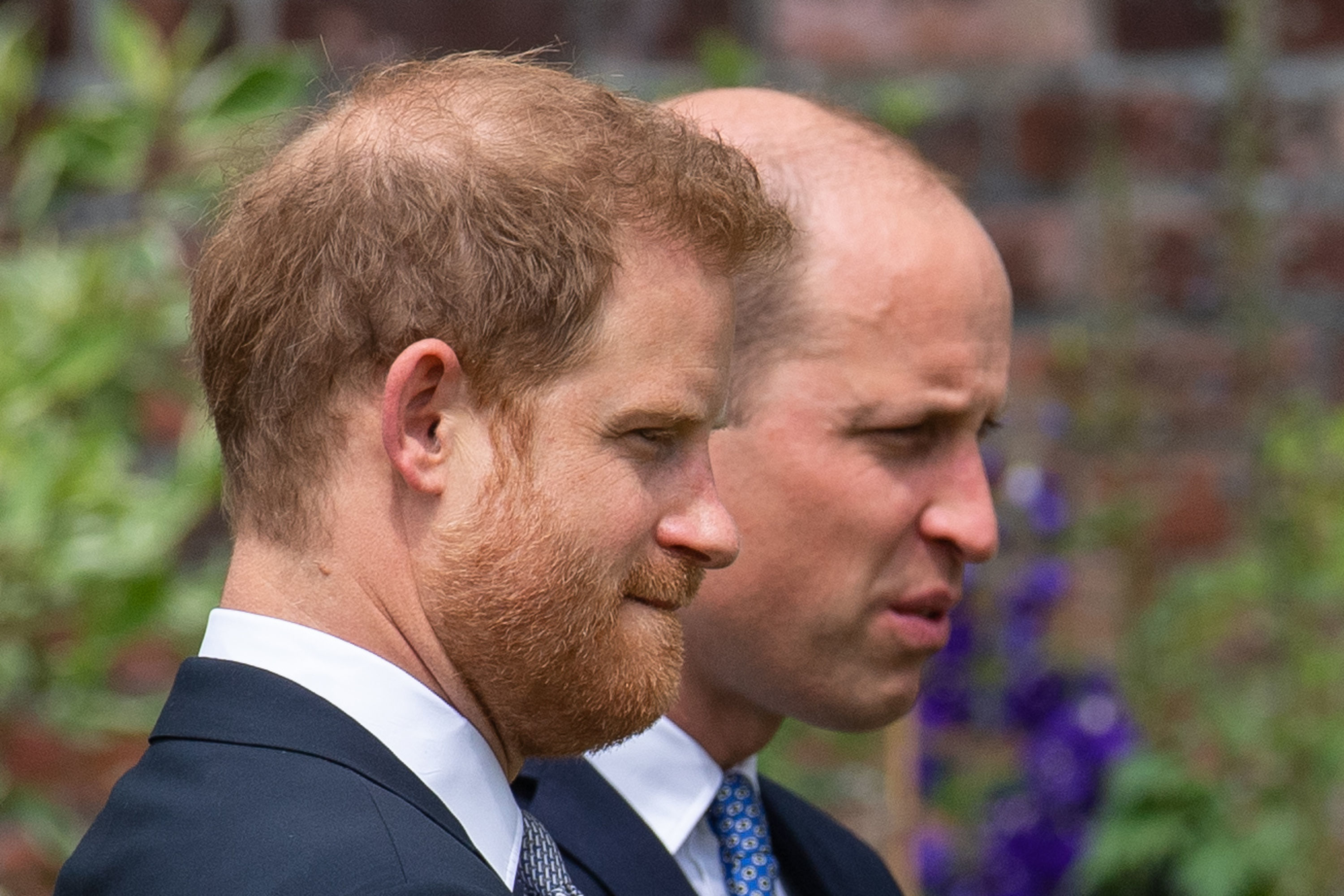
A free daily email with the biggest news stories of the day – and the best features from TheWeek.com
You are now subscribed
Your newsletter sign-up was successful
The Royal Family has accused the producers of a new two-part BBC Two documentary of making “overblown and unfounded claims” about the way its various households operate and communicate with the media.
Part one of The Princes and the Press, presented by the BBC’s media editor Amol Rajan, documents the very different journeys the younger royals have had with the British media from their early adulthood up until Prince Harry’s marriage to Meghan Markle in 2018.
The second part, which will be broadcast at 9pm this evening, examines the tumultuous period for the Royal Family from 2018 to 2021 and the circumstances that led the Duke and Duchess of Sussex to step down from their senior royal roles.
The Week
Escape your echo chamber. Get the facts behind the news, plus analysis from multiple perspectives.

Sign up for The Week's Free Newsletters
From our morning news briefing to a weekly Good News Newsletter, get the best of The Week delivered directly to your inbox.
From our morning news briefing to a weekly Good News Newsletter, get the best of The Week delivered directly to your inbox.
A rare joint statement issued by Buckingham Palace, Clarence House and Kensington Palace said that while the royals believe that “a free, responsible and open press is of vital importance to a healthy democracy” they were disappointed that the BBC had given credibility to allegations made by “unnamed sources that are presented as facts”, the Evening Standard reported.
The royals are thought to be so furious about the documentary that Prince William decided to offer ITV coverage of a Westminster Abbey carol concert that he and the Duchess of Cambridge were taking part in rather than the BBC. Sources at ITV said they were only made aware of the offer last week, just a few weeks before the concert is taking place.
Despite the furore, the first part of the documentary turned out to be no more than a “storm in a royal teacup”, said The Telegraph’s arts and entertainment editor Anita Singh. Instead, episode one “led us through what we already knew” and “contained no bombshells”.
Rajan “did a good job of balancing the different sides”, added the i news site’s Gerard Gilbert. “I don’t think the Palace would have anything to complain about here,” he continued. “They might even recognise some home truths.”
A free daily email with the biggest news stories of the day – and the best features from TheWeek.com
That said, several noteworthy insights were provided about the inner workings of the Royal Family, mainly thanks to the candid nature of the royal correspondents interviewed by Rajan. Here are five of the most interesting revelations:
Harry overshadowed Prince Charles’s 2016 royal tour
When Prince Harry released his strongly worded statement in 2016 confirming he was dating his then girlfriend Markle and blasting the “wave of abuse and harassment” she had received in newspapers, on social media and by the public, it was unprecedented for more than one reason.
Prince Charles had been on a royal tour of the Middle East at the time to promote Britain’s links in the region – a trip that was immediately overshadowed by his youngest son. “Charles thought he was page one [of the newspapers]”, said Robert Jobson, royal editor at the Evening Standard.
What Harry did was a “big no-no with the Royal Family”, agreed The Telegraph’s Camilla Tominey, who was royal editor of the Sunday Express at the time.
“You do not do anything while another member of the Royal Family is on tour that could possibly overshadow that tour,” she added. “Of course Prince Harry confirming he was dating Meghan Markle blew any coverage of Prince Charles out of the water.”
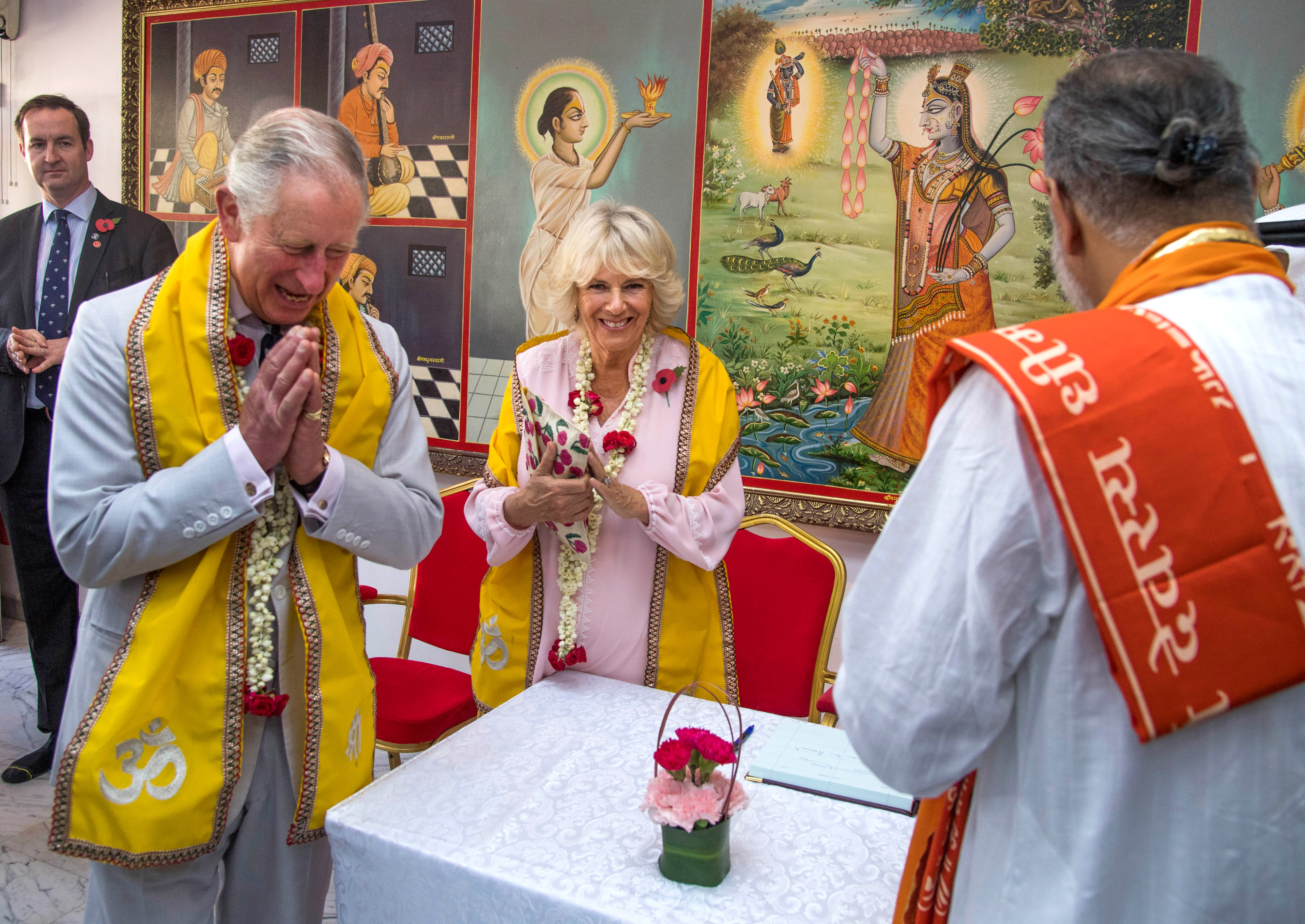
The households ‘are in competition’
The documentary claimed that despite having the same general aim – protecting the profile of the Royal Family – there is not always harmony between the three royal households. “You have to be aware that there are these different households kind of in competition with each other when it comes to the press,” explained Tominey.
Around the time of Harry’s bombshell statement, the households were “working in silos”, added Sky News’ royal correspondent Rhiannon Mills. “The households obviously have to consult very closely when it comes to diaries, who is announcing what and when, but within each household, there is still this competitiveness for getting coverage for their causes, for the visits they’re doing.”
According to research commissioned specifically for the documentary, Harry’s 2016 statement did make an impact – at least temporarily. Press coverage of Markle reached its most positive level in the months following the statement, the researchers discovered.
But as Tim Ewart, ITV’s royal editor between 2009 and 2017, says at the start of episode one: “The media, particularly the tabloids, are like a puppy. They will roll over and let you tickle their tummy for a while. But then they will bite you.”
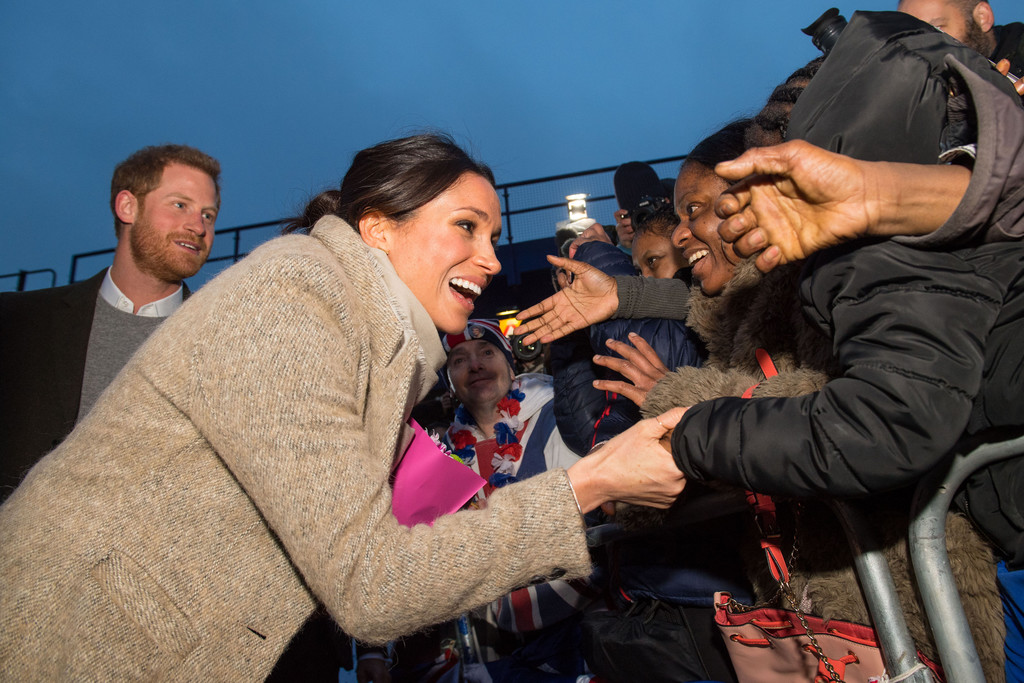
Press weren’t initially allowed at Sussex wedding
The documentary reveals that the Royal Family initially attempted to block all press from going into St George’s Chapel during the Duke and Duchess of Sussex’s 2018 Windsor wedding.
“When it came to the wedding, the starting point was that there would be no members of the press inside St George’s Chapel, not even the Press Association,” said The Sunday Times’ royal editor Roya Nikkhah.
“When we all first got this operational note through from Kensington Palace and looked at it, we said to each other ‘this is ridiculous – how are the public going to know what’s going on inside the chapel?’”
Valentine Low, royal correspondent for The Times, revealed that he wrote “a very long, very polite letter” to the palace press team, aiming to persuade them to change their mind. Eventually, after negotiations, one reporter from the Press Association was allowed inside the chapel, with other reporters outside.
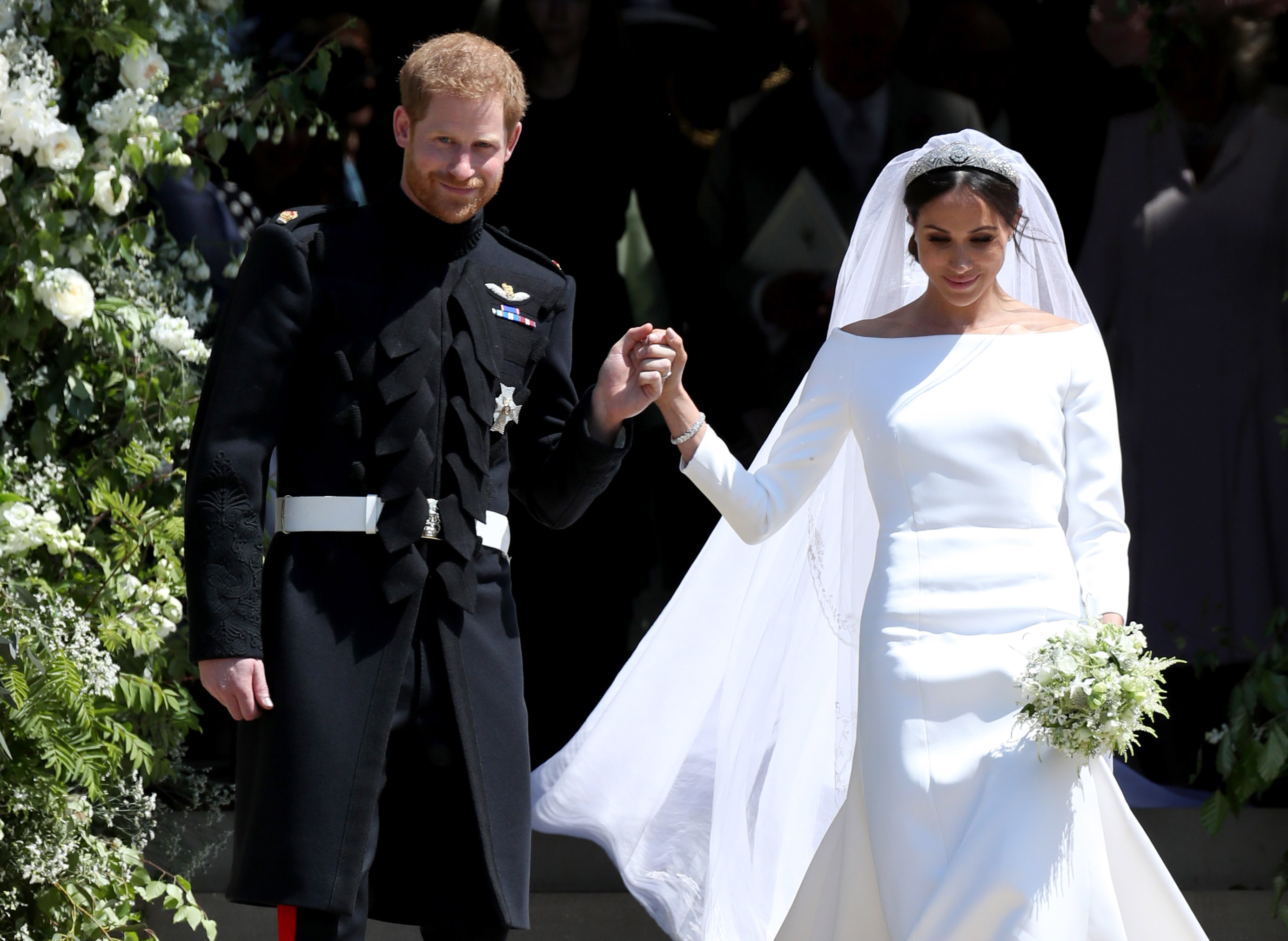
William ‘wooed’ the press following Harry’s wedding
In the months following Harry and Meghan’s wedding, William brought new advisers into the Kensington Palace household, revealed the documentary.
These people were “very clever, well-connected government professional communications officers”, said the Standard’s Jobson. The point of bringing them into the palace was to build a better rapport with some of the tabloid newspapers, he explained.
“Editors from various newspapers were invited in to meet [William],” added Sky’s Mills. The purpose was both “for him to understand what newspapers and broadcasters are about and for him to kind of set out his stall for them”.
Harry clashed with journalists on 2018 tour
Harry was “pretty grumpy” on his October 2018 tour of New Zealand, Australia, Tonga and Fiji, said The Times’ Low. During a “long and incredibly boring welcome ceremony” in Fiji, Meghan “sat perfect” but Harry was “just glowering”, he added.
“He was very cross with the media and spent the whole welcome ceremony diverting his gaze to stare daggers at the press pack.”
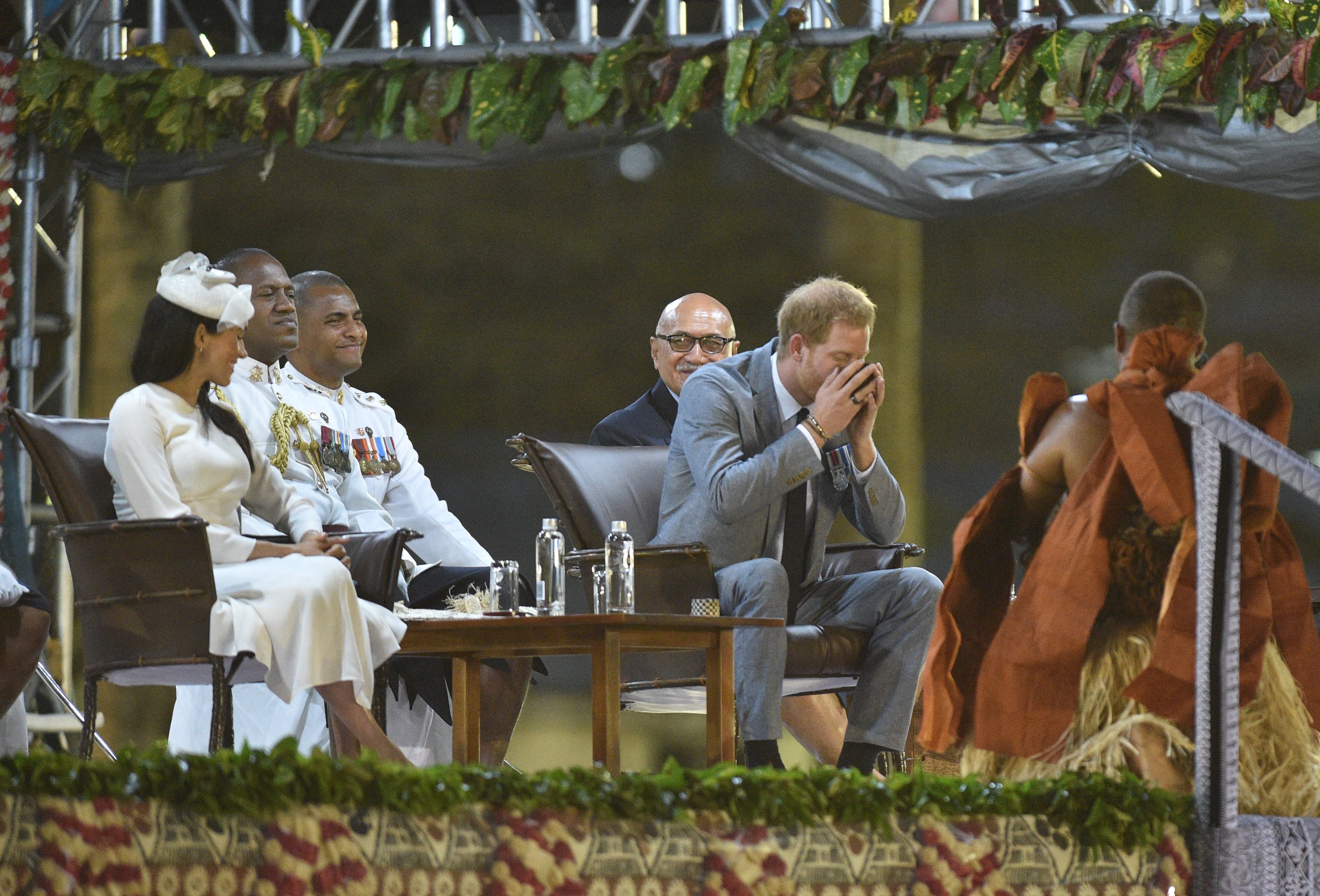
On the way back to Sydney from Tonga, Harry’s staff persuaded him to go to the back of the plane to speak to the press. “He said something like ‘thanks for coming guys – not that you were invited’,” said Low. “It went down incredibly badly.”
“He did it because he went back, saw us and had a visceral reaction – it’s absolutely built into him,” explained the BBC’s royal correspondent Jonny Dymond.
The final part of The Princes and the Press will be shown tonight at 9pm on BBC Two.
Kate Samuelson is The Week's former newsletter editor. She was also a regular guest on award-winning podcast The Week Unwrapped. Kate's career as a journalist began on the MailOnline graduate training scheme, which involved stints as a reporter at the South West News Service's office in Cambridge and the Liverpool Echo. She moved from MailOnline to Time magazine's satellite office in London, where she covered current affairs and culture for both the print mag and website. Before joining The Week, Kate worked at ActionAid UK, where she led the planning and delivery of all content gathering trips, from Bangladesh to Brazil. She is passionate about women's rights and using her skills as a journalist to highlight underrepresented communities. Alongside her staff roles, Kate has written for various magazines and newspapers including Stylist, Metro.co.uk, The Guardian and the i news site. She is also the founder and editor of Cheapskate London, an award-winning weekly newsletter that curates the best free events with the aim of making the capital more accessible.
-
 Political cartoons for February 12
Political cartoons for February 12Cartoons Thursday's political cartoons include a Pam Bondi performance, Ghislaine Maxwell on tour, and ICE detention facilities
-
 Arcadia: Tom Stoppard’s ‘masterpiece’ makes a ‘triumphant’ return
Arcadia: Tom Stoppard’s ‘masterpiece’ makes a ‘triumphant’ returnThe Week Recommends Carrie Cracknell’s revival at the Old Vic ‘grips like a thriller’
-
 My Father’s Shadow: a ‘magically nimble’ film
My Father’s Shadow: a ‘magically nimble’ filmThe Week Recommends Akinola Davies Jr’s touching and ‘tender’ tale of two brothers in 1990s Nigeria
-
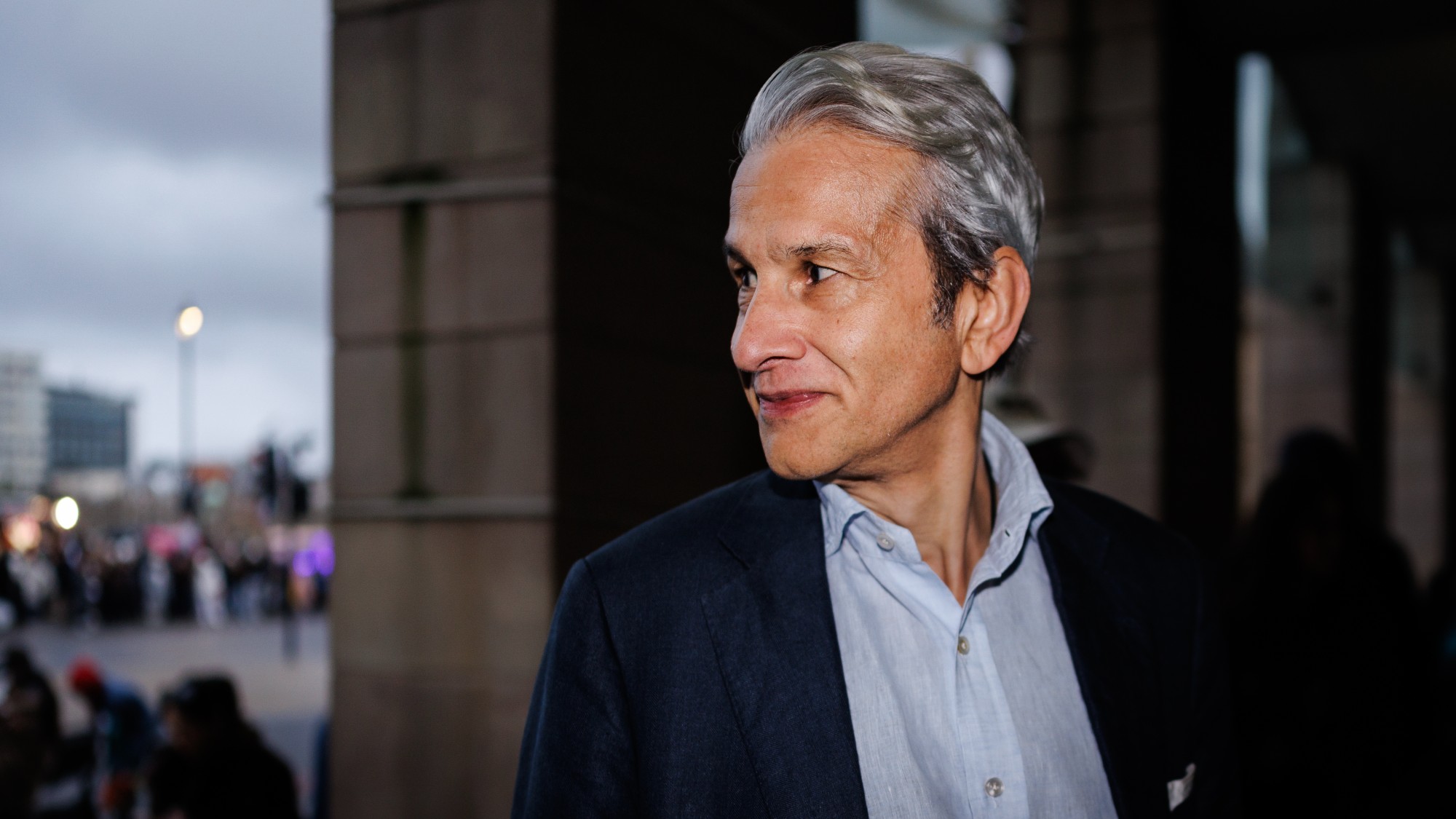 Can the BBC weather the impartiality storm?
Can the BBC weather the impartiality storm?Today's Big Question MPs’ questions failed to land any ‘killer blows’ to quell the ‘seismic outrage’ faced by the BBC
-
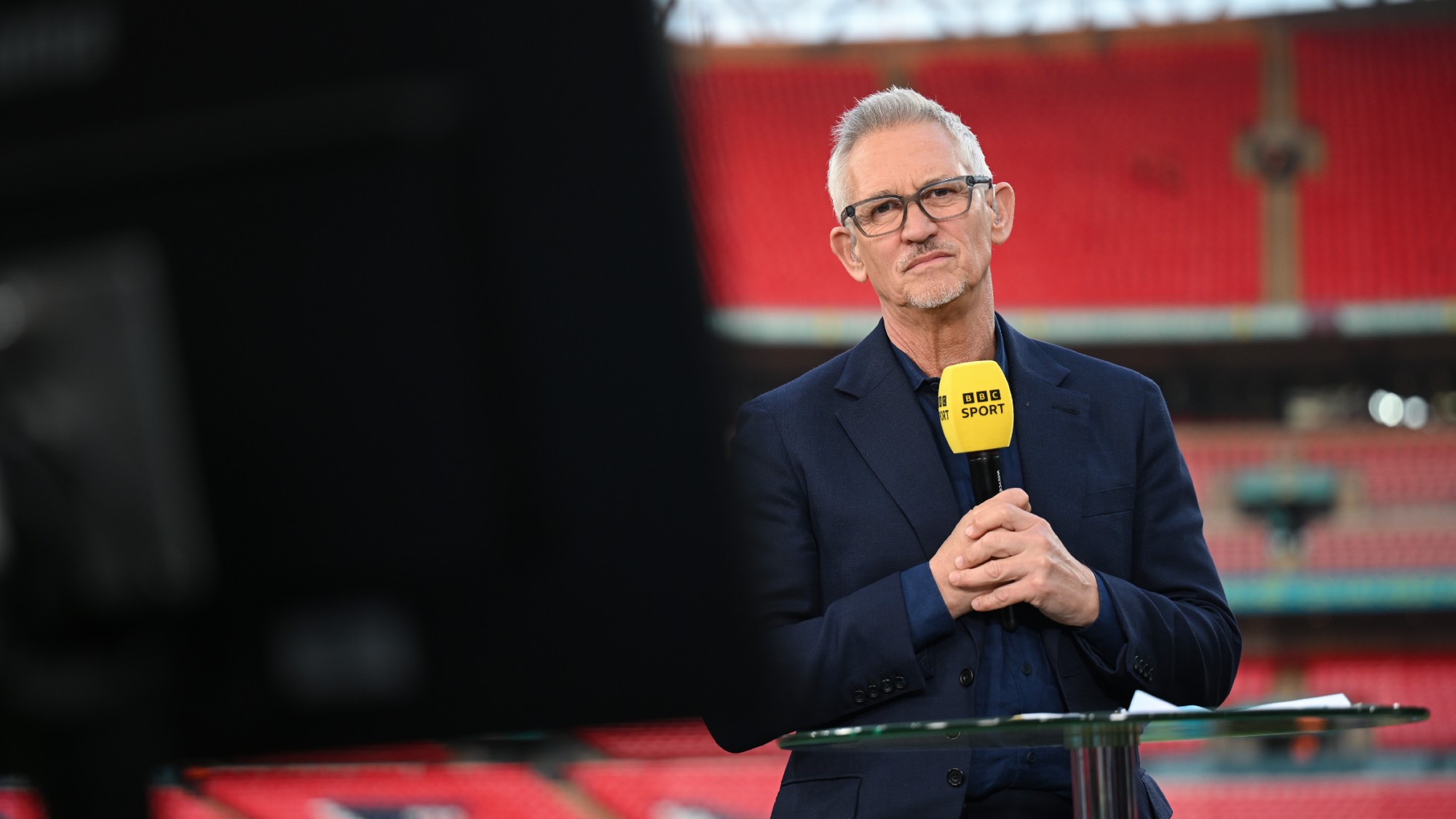 What are the impartiality rules for BBC presenters?
What are the impartiality rules for BBC presenters?The Explainer News presenters and hosts of 'flagship programmes' must adhere to tougher guidelines than other staff and freelancers
-
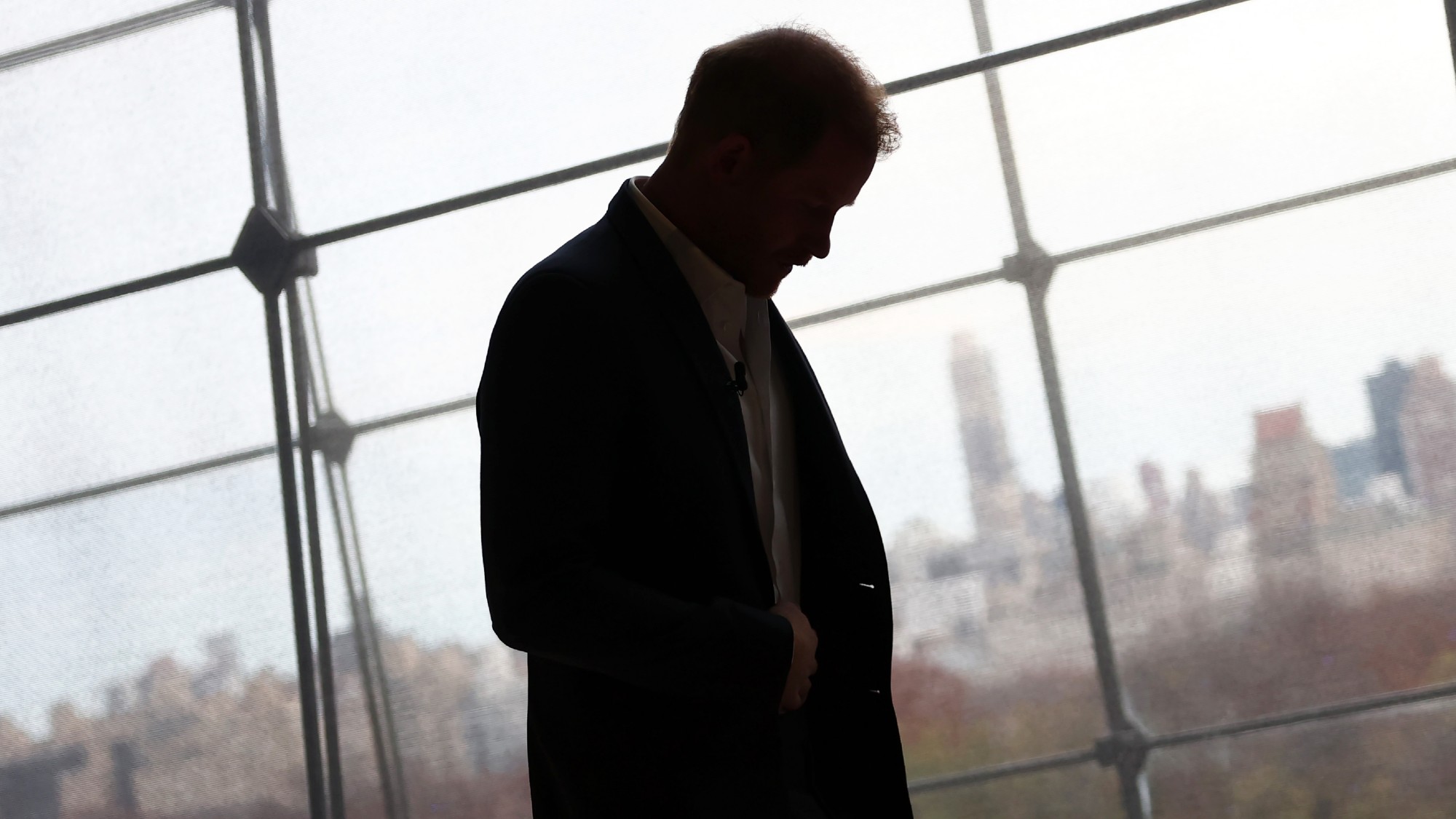 Phone hacking: victory for Prince Harry?
Phone hacking: victory for Prince Harry?Talking Point Even those who do not share the royal's views about the press should 'commend' his dedication to pursuing wrongdoing
-
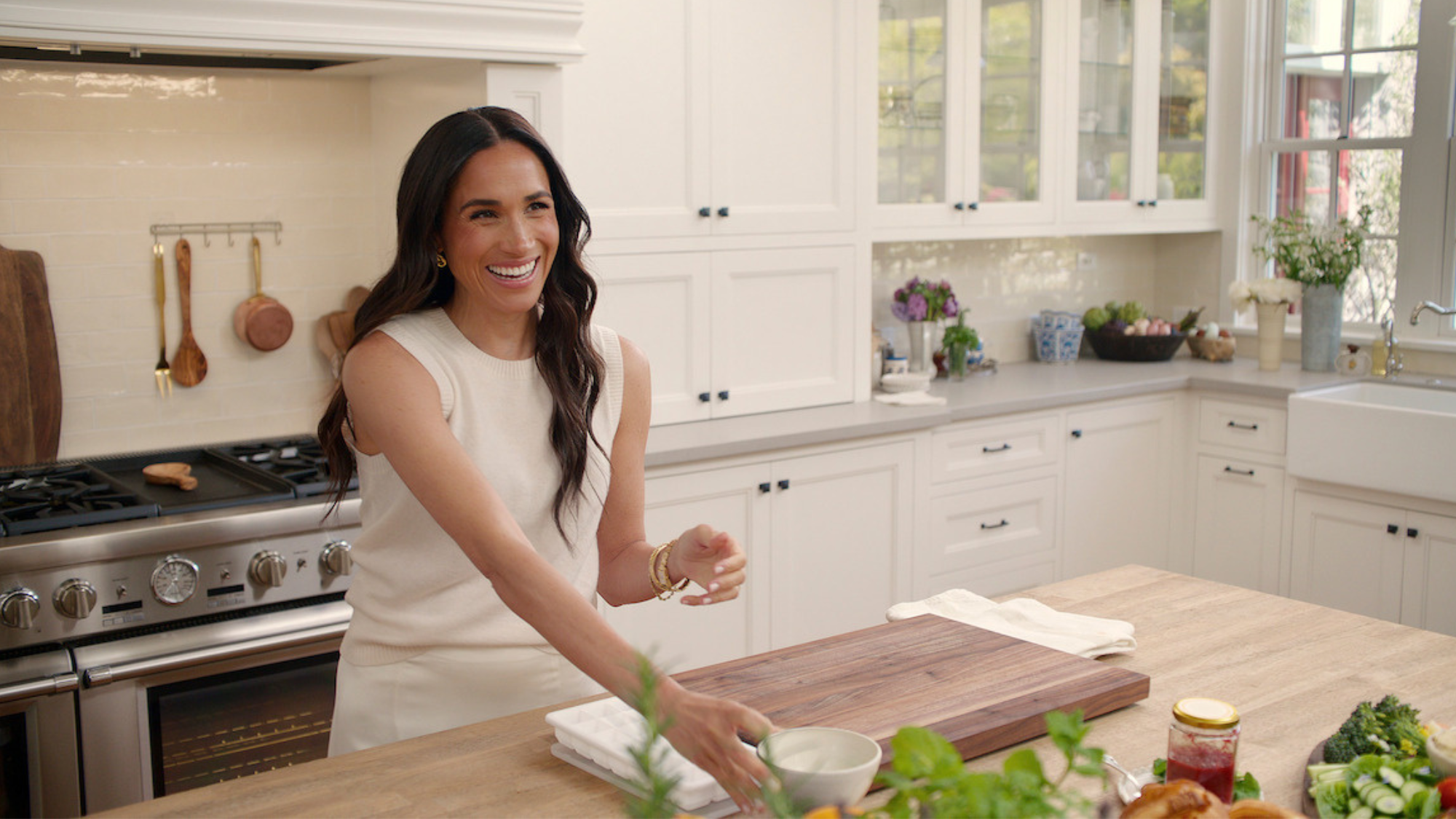 Meghan Markle's Netflix show: 'bang on the money' or hopelessly 'cheugy'?
Meghan Markle's Netflix show: 'bang on the money' or hopelessly 'cheugy'?Talking Point The Duchess of Sussex relaunched her Instagram just in time for the trailer for her new lifestyle series
-
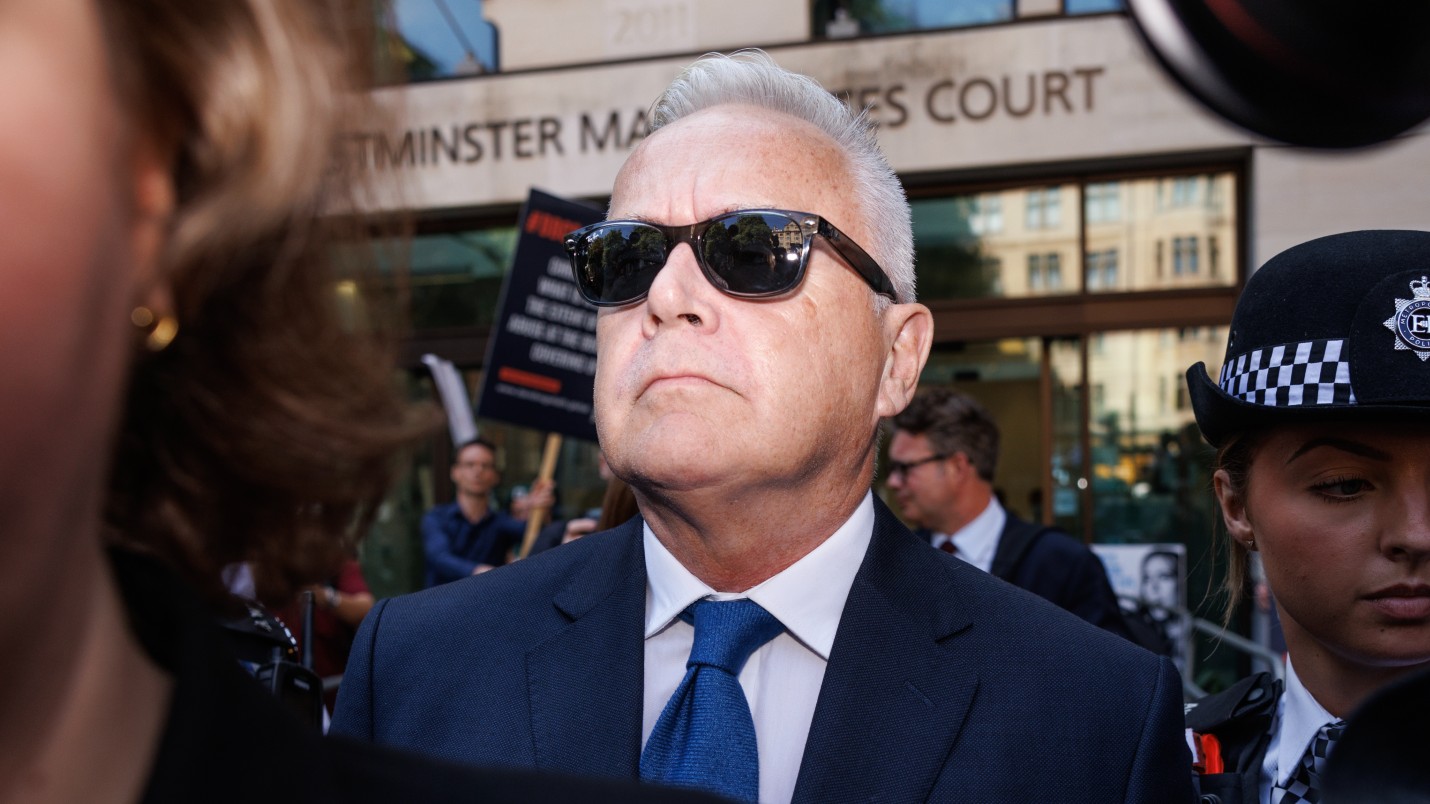 Huw Edwards: why is the BBC so scandal-prone?
Huw Edwards: why is the BBC so scandal-prone?In the Spotlight The national broadcaster has serious questions to answer
-
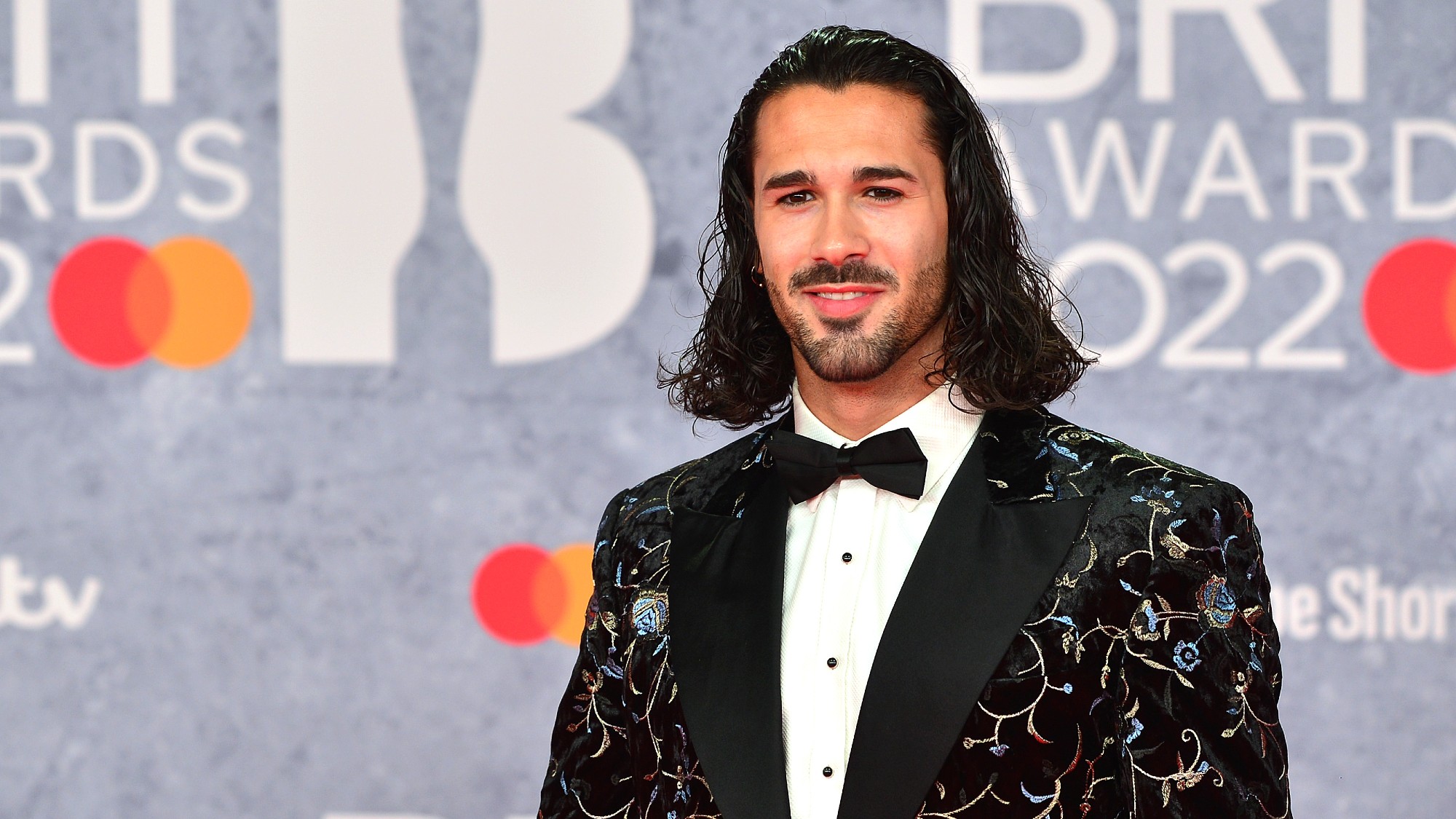 Strictly Come Dancing scandal timeline: what happened when
Strictly Come Dancing scandal timeline: what happened whenIn the Spotlight BBC director general addresses speculation over show's future and apologises to celebrity contestants who say they were mistreated
-
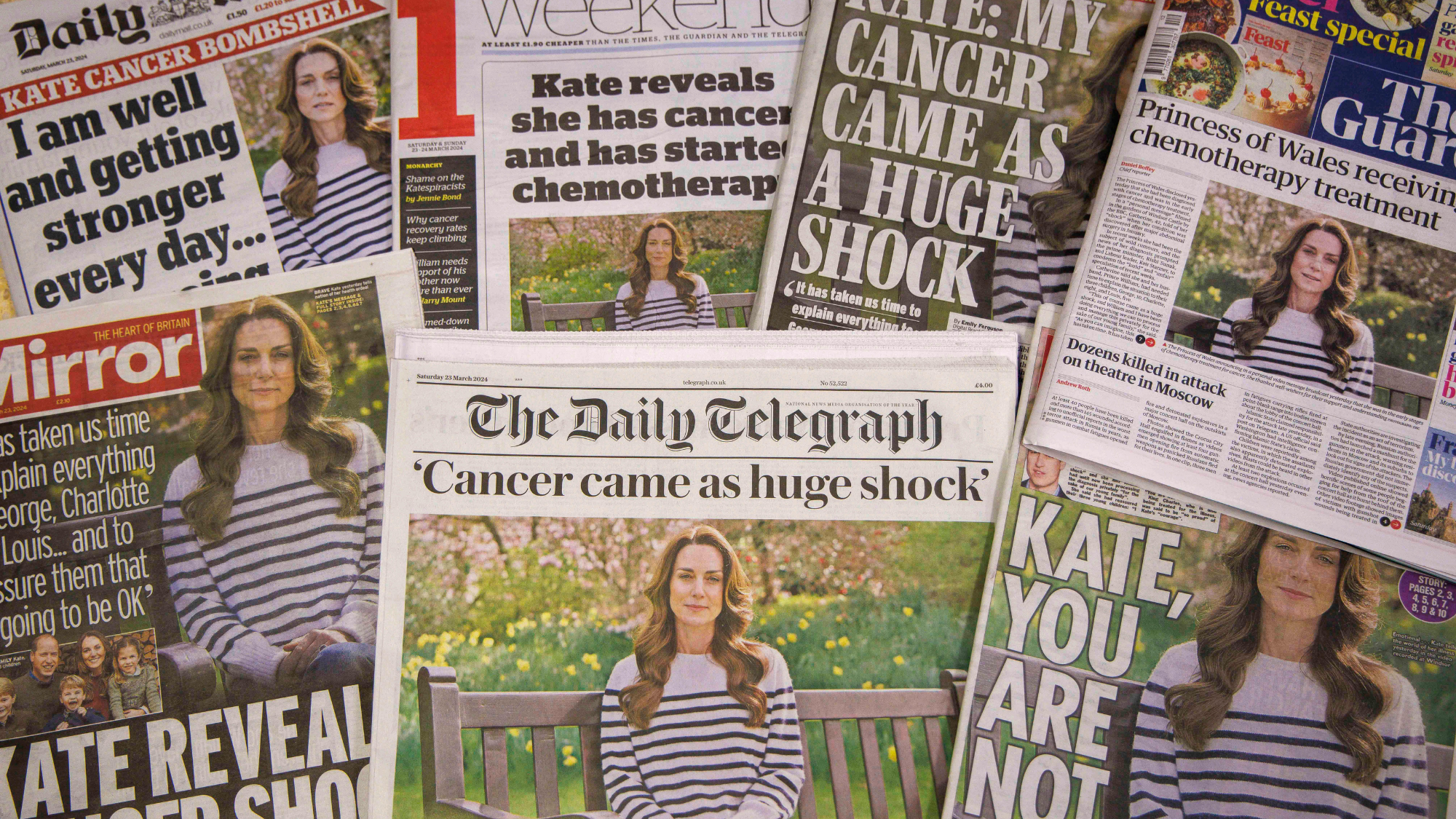 Katespiracy: is the media to blame?
Katespiracy: is the media to blame?Talking Point Public statement about cancer diagnosis followed weeks of wild speculation and conspiracy theories
-
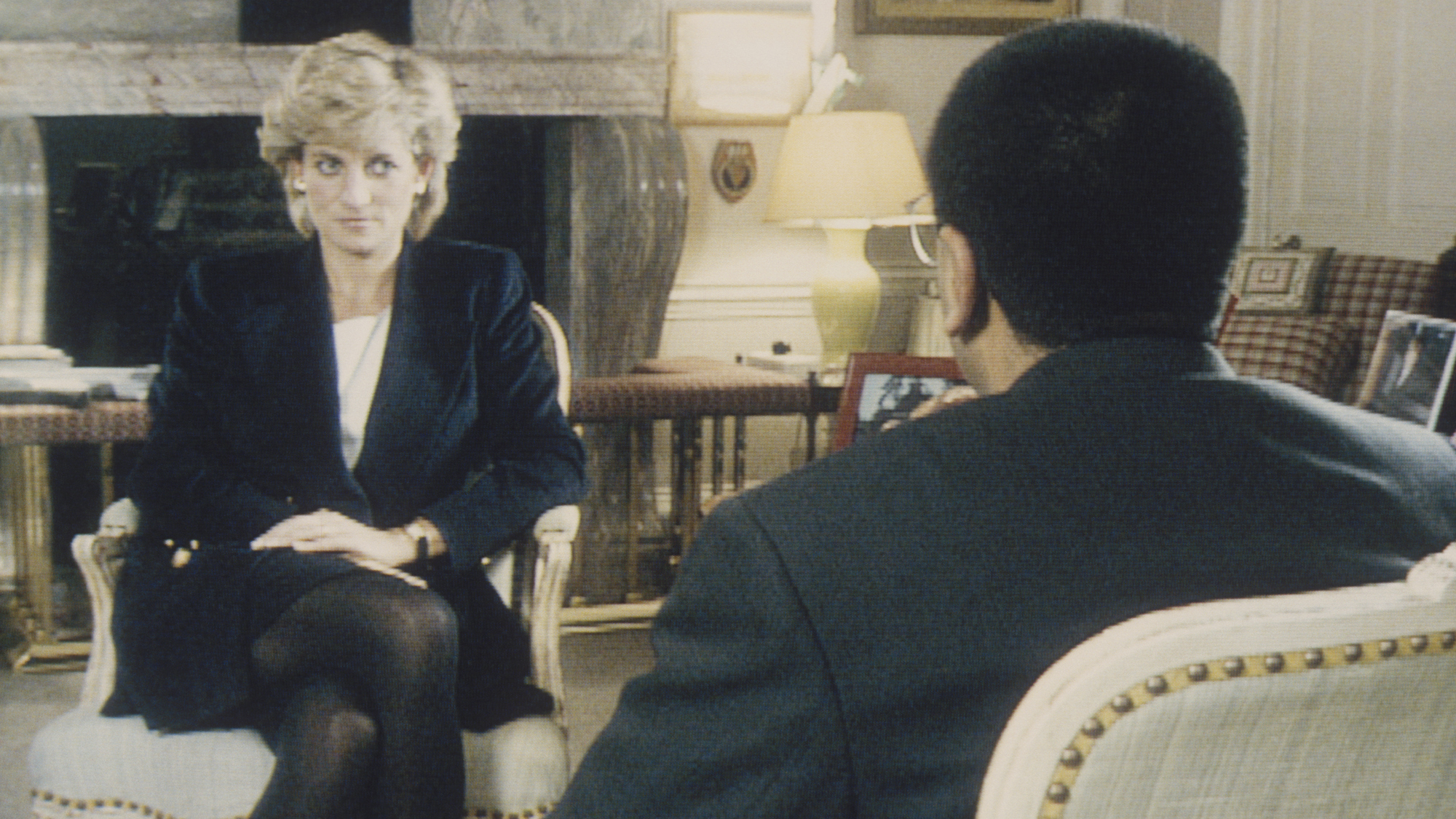 The Princess Diana interview and Martin Bashir's redacted dossier
The Princess Diana interview and Martin Bashir's redacted dossierIn the Spotlight The newly revealed documents show Bashir claimed jealousy and discrimination fuelled allegations against him